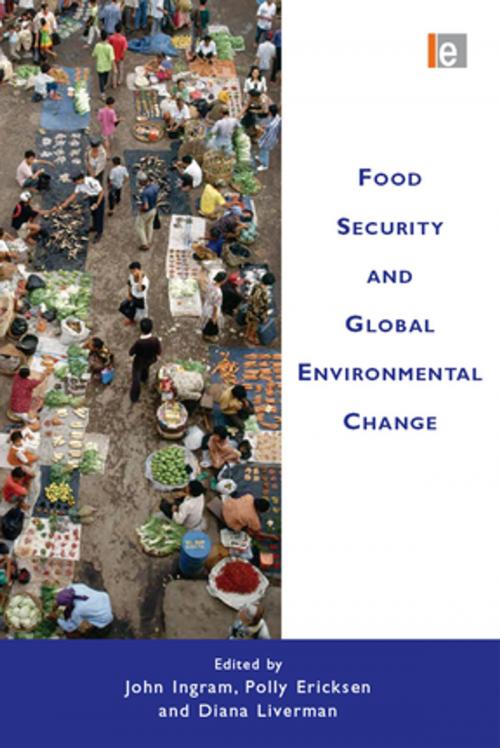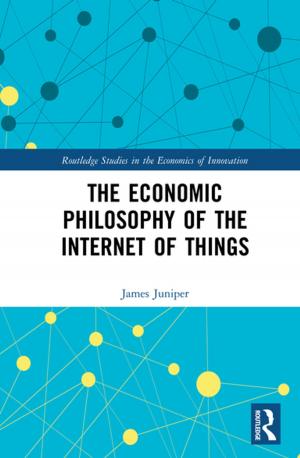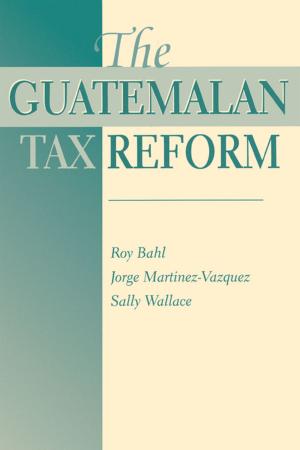Food Security and Global Environmental Change
Nonfiction, Science & Nature, Technology, Agriculture & Animal Husbandry| Author: | John Ingram, Polly Ericksen, Diana Liverman | ISBN: | 9781136530883 |
| Publisher: | Taylor and Francis | Publication: | July 26, 2012 |
| Imprint: | Routledge | Language: | English |
| Author: | John Ingram, Polly Ericksen, Diana Liverman |
| ISBN: | 9781136530883 |
| Publisher: | Taylor and Francis |
| Publication: | July 26, 2012 |
| Imprint: | Routledge |
| Language: | English |
Global environmental change (GEC) represents an immediate and unprecedented threat to the food security of hundreds of millions of people, especially those who depend on small-scale agriculture for their livelihoods. As this book shows, at the same time, agriculture and related activities also contribute to GEC by, for example, intensifying greenhouse gas emissions and altering the land surface. Responses aimed at adapting to GEC may have negative consequences for food security, just as measures taken to increase food security may exacerbate GEC. The authors show that this complex and dynamic relationship between GEC and food security is also influenced by additional factors; food systems are heavily influenced by socioeconomic conditions, which in turn are affected by multiple processes such as macro-level economic policies, political conflicts and other important drivers. The book provides a major, accessible synthesis of the current state of knowledge and thinking on the relationships between GEC and food security. Most other books addressing the subject concentrate on the links between climate change and agricultural production, and do not extend to an analysis of the wider food system which underpins food security; this book addresses the broader issues, based on a novel food system concept and stressing the need for actions at a regional, rather than just an international or local, level. It reviews new thinking which has emerged over the last decade, analyses research methods for stakeholder engagement and for undertaking studies at the regional level, and looks forward by reviewing a number of emerging 'hot topics' in the food security-GEC debate which help set new agendas for the research community at large. Published with Earth System Science Partnership, GECAFS and SCOPE
Global environmental change (GEC) represents an immediate and unprecedented threat to the food security of hundreds of millions of people, especially those who depend on small-scale agriculture for their livelihoods. As this book shows, at the same time, agriculture and related activities also contribute to GEC by, for example, intensifying greenhouse gas emissions and altering the land surface. Responses aimed at adapting to GEC may have negative consequences for food security, just as measures taken to increase food security may exacerbate GEC. The authors show that this complex and dynamic relationship between GEC and food security is also influenced by additional factors; food systems are heavily influenced by socioeconomic conditions, which in turn are affected by multiple processes such as macro-level economic policies, political conflicts and other important drivers. The book provides a major, accessible synthesis of the current state of knowledge and thinking on the relationships between GEC and food security. Most other books addressing the subject concentrate on the links between climate change and agricultural production, and do not extend to an analysis of the wider food system which underpins food security; this book addresses the broader issues, based on a novel food system concept and stressing the need for actions at a regional, rather than just an international or local, level. It reviews new thinking which has emerged over the last decade, analyses research methods for stakeholder engagement and for undertaking studies at the regional level, and looks forward by reviewing a number of emerging 'hot topics' in the food security-GEC debate which help set new agendas for the research community at large. Published with Earth System Science Partnership, GECAFS and SCOPE















